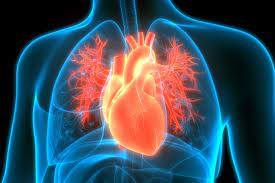
What is Heart Failure?
The heart, a muscular organ roughly equal to the size of a fist, primarily pumps blood to all the parts of the human body to ensure the smooth functioning of all organs.
Heart failure, in real terms, means that this pumping organ has lost its ability to work to its maximum potential. The insufficient amount of blood entering the other organs of the human body leads to a wide array of complications that we will discuss below.
Heart failure is either an underlying cause for several other complications or an outcome of the adverse effects of other medical conditions such as coronary artery disease or hypertension.
The weakening of heart muscles is one of the leading causes of why an adequate amount of blood is not pumped out of the heart. This can lead to severe effects on the body.
Types of Heart Failure:
Heart failure can be of 4 different types depending on the origin and the physiology.
-
Left-sided heart failure: Left ventricle, the lower chamber of the heart involved in systemic circulation, often gets weak enough. Hence, it can’t pump sufficient oxygenated blood to the body. This causes the re-entry of blood into the lungs, causing wheezing or shortness of breath. This is one of the critical signs and symptoms for an early diagnosis.
-
Right-sided heart failure: Right ventricle, the lower chamber of the heart, which is involved in pulmonary circulation, becomes inefficient. The onset of this condition is often secondary to left-sided heart failure. Accumulation of blood into the lungs puts an extra burden onto the right side of the heart to meet the demand. Right-sided heart failure leads to swelling of lower organs such as the liver etc.
-
Diastolic heart failure: Diastole refers to the relaxation phase of the heart. In this condition, heart muscles become relatively stiffer. Hence, the heart chambers don’t get filled with blood well enough (Diastole dysfunction). This also leads to backflow and accumulation of blood in multiple organs. This condition is more common in females.
-
Systolic heart failure: Systole refers to the contraction phase of the heart muscle, which pumps blood out of the heart. When muscles of the heart lose their ability to contract appropriately, not enough blood is delivered to the body, leading to systolic dysfunction. This condition is more common in males.
Symptoms of Heart Failure:
While the symptoms may not be experienced initially, symptoms might become severe as the condition progresses. Some of them are as follows:
-
Wheezing or breathlessness
-
Swelling of body organs like abdomen, feet, arms
-
Irregular heart rate
-
Palpitations
-
Fatigue
-
Loss of appetite
-
Chest pain
Risk Factors of Heart Failure:
As discussed earlier, a person can develop heart failure due to some other underlying complication such as:
-
Coronary artery disease (narrowing of arteries which leads to insufficient oxygen and nutrient supply to heart muscle)
-
Heart attack
-
Hypertension
-
Cardiomyopathy (weakening of heart muscle)
-
Diabetes
-
Congenital heart anomalies
-
Sleep Apnea
-
Anemia
-
Alcohol abuse
-
Some medications such as NSAIDs
-
Obesity
Complications of Heart Failure:
Chronic heart failure can lead to several other illnesses, such as congestive heart failure, which can be mild or severe. The prime reason for developing other complications include the buildup of fluid in multiple organs. Complications include:
-
Liver damage
-
Heart valve damage
-
Kidney damage
-
Arrhythmias
-
Heart attack
What to Expect from a Doctor:
Our aim is always to guide you with a road map to move forward.
Your doctor is going to first check for the symptoms of heart failure. To confirm, your cardiologist is likely to ask you for an echocardiogram which aims to take your heart pictures based on sound waves.
In the case of diagnosis, the severity level is checked. Mainly, doctors prescribe treatment plans with a focus of increasing life span.
Common medications include beta-blockers, calcium channel blockers, cholesterol managing drugs, ARBs, and ACEIs. The end purpose of all these medications is to restore the functioning of the heart muscle to pump blood.
If your doctor detects an emergency, they could recommend procedures such as a bypass/transplant surgery, angioplasty, pacemaker-insertion or implantable cardioverter-defibrillator (ICD).
Simple Lifestyle Changes:
While heart failure is not commonly reversible, simple lifestyle changes can prevent development of this condition.
-
Quit smoking and minimise alcohol usage
-
Manage your weight precisely
-
Make sure to do brisk exercise to keep your heart healthy
-
Have a diet low in fats as well as sodium
-
Get a good amount of sleep
These changes are a must!
General Outlook Moving Forward:
As daunting as the condition sounds, you can always manage it. We highly suggest you follow your treatment plan closely.
Take medications on time without skipping!
Keep checking with your doctor on a timely basis. Avoid everything that you are asked to avoid at all costs.
Stop habits like smoking and alcohol consumption because they are only going to aggravate the illness.
Stay persistent and disciplined with your heart health routine because, after all, it’s a matter of heart <3.



